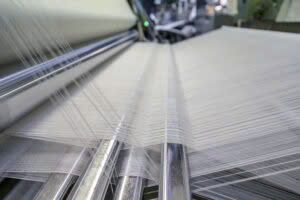Yarn sizing is a crucial process in textile production, where starch is applied to strengthen yarn and reduce breakage during weaving. Traditional synthetic sizing agents can be harmful to both the environment and workers.
Tapioca starch, however, provides a non-toxic, biodegradable solution that achieves the same results without the negative side effects. Tapioca starch is also cost-effective. It is more affordable than synthetic alternatives, particularly for large-scale operations.Additionally, its water solubility makes it easier to wash out during the finishing process, reducing water consumption and chemical runoff—critical factors in sustainable textile manufacturing.
Another significant advantage is tapioca starch’s adaptability. It can be modified to achieve different viscosities and properties, making it suitable for various fabrics, from cotton to synthetic blends. This flexibility allows manufacturers to use one type of starch across multiple product lines, streamlining production processes.
Finally, using tapioca starch helps reduce the industry’s carbon footprint. As a plant-based product, it supports more sustainable farming practices and reduces reliance on petrochemicals, aligning with global efforts to combat climate change.
In conclusion, modified tapioca starch is becoming indispensable in the textile industry, providing a greener, more efficient alternative to traditional methods while maintaining high-quality production standards.
